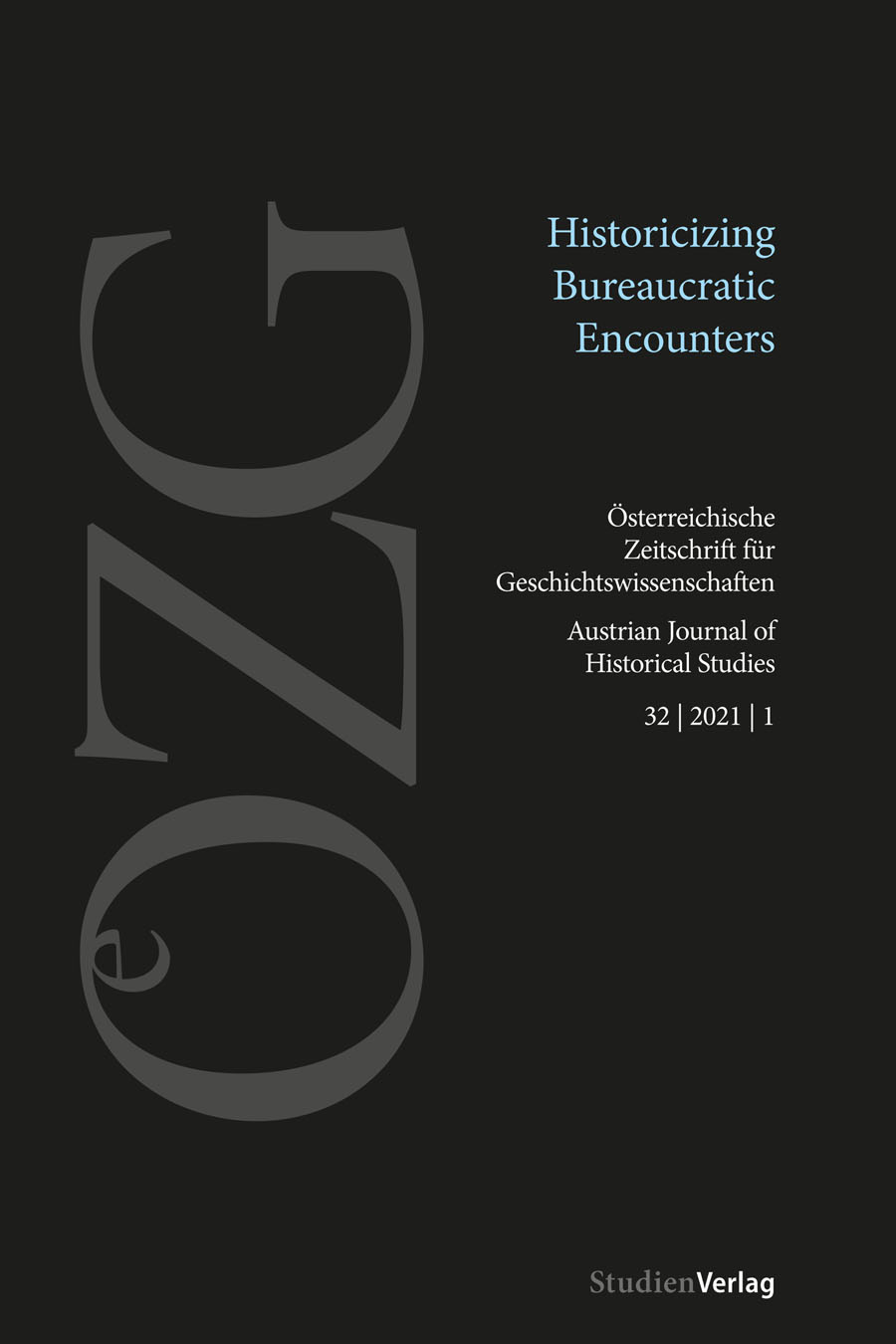Managing Political Conflict in a Democratizing Polity
Administrative Reform, Trust and Throughput Legitimacy in Imperial Austria ca. 1900–1914
DOI:
https://doi.org/10.25365/oezg-2021-32-1-4Keywords:
bureaucratic encounters, Austria-Hungary, history of emotions, history of administrationAbstract
This article explores the role of trust in the administrative reform debates in Cisleithania between 1890 and 1918 through the lens of bureaucratic encounters. For politicians, civil servants and scholars, administrative reform played a crucial role in mitigating what they saw as the negative consequences of democratic politics: partisan conflict, which increasingly obstructed legislative work from the late 1890s. As administrative reformers perceived democratic politics not as a source of legitimation but the cause of a crisis of governability, they looked for other ways to legitimate the imperial state. They propagated that the state administration needed to acquire the population’s trust as a form of legitimation independent from representative institutions and argued for regular contact and personal interactions between civil servants and the populace at the local level. However, part of their concept of trust was a veiled distrust of citizens as political and bureaucratic subjects.
Downloads
Published
How to Cite
Issue
Section
License
Copyright (c) 2021 Thomas Rohringer

This work is licensed under a Creative Commons Attribution 4.0 International License.


